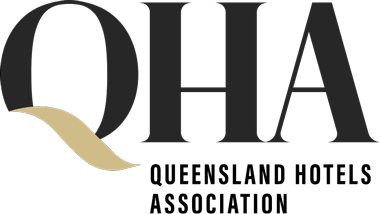Employer obligations for record keeping
With the rise in reported wage theft and employees contacting the Fair Work Ombudsman with requests for assistance, employers are now facing greater scrutiny in the area of record keeping.
Maintaining accurate employee records is essential for employers to avoid legal issues and ensure compliance with Australia’s workplace laws. Properly managed employee records can help prevent misunderstandings, disputes about wages and importantly, assist in passing inspections conducted by Fair Work and Office of Industrial Relations Inspectors and even Australian Border Force Officers.
Inspections can be random or initiated following receipt of requests for assistance from former or current employees. If the records cannot be produced or have no been kept properly, there are two likely consequences:
- The employee’s allegation about hours and days worked is likely to be accepted over an employer response in the absence of documentary evidence; and
- The employer will be fined for failing to keep proper records in accordance with the Fair Work Act 2009 (Cth) and may have penalty and/or criminal proceedings taken against them.
These penalties can be severe, and in cases where intentional underpayment can be established, criminal charges may be pursued.
In this article, we explore how employers can easily meet their record keeping obligations under the Fair Work Act 2009 (Cth), the role of Fair Work Inspectors and Australian Border Force officers from the Department of Home Affairs.
Employee Records
The first step is for employers is to check their records to ensure compliance with the Act and the Fair Work Regulations 2009 (‘the Regulations’). Under these pieces of legislation, employers must make, keep and maintain accurate and complete records for all employees. It is important to remember that all national system employees are covered by the Fair Work Act 2009, regardless of their immigration status.
The record for each employee must include the following:
- Basic employment details including:
- the name of the employer and the employee
- the nature of the employee’s employment (i.e., full-time, part-time, permanent, temporary or casual).
- the date on which the employment began.
- Their pay, including:
- the rate of renumeration paid to the employee,
- the gross and net amounts paid to the employee and
- any deductions made from the gross amount paid to the employee.
- the number of hours worked, if they are a casual or irregular part-time employee
- the details of any incentive-based payment, bonus, loading, penalty rate, allowance or separately identifiable entitlement.
- Overtime hours, including:
- the number of overtime hours worked by the employee during each day;
- or when the employee started and ceased working overtime hours.
- Averaging arrangements, specifically a copy of the agreement reached between employer and employee about the averaging of the employee’s hours of work.
- Leave entitlements, including a record of each respective leave balance, and of any leave that the employee takes. If an agreement is made to cash out an accrued amount of leave, the record must include a copy of the agreement, the rate of payment for the amount of leave cashed out and when the payment was made.
- Superannuation contributions including:
- the amount of the contributions made
- the period over which the contributions were made, including the date on which each contribution was made
- the name of the fund to which a contribution was made
- the basis on which the employer became liable to make the contribution, including a record of any election made by the employee as to the fund to which contributions are to be made.
- Termination of employment, including whether the employment was terminated by consent, notice or summarily or in some other manner, as well as the name of the person who acted to terminate the employment.
- Individual Flexibility Arrangement, including a copy of the agreement and a copy of the notice terminating that agreement.
- Guarantee of annual earnings, including a copy of the guarantee and any revocation of the guarantee, pursuant to section 330 of the Act.
- Transfer of business, in this event the Regulations require the old employer to transfer to the new employer each employee record concerning a transferring employee that the old employer was required to keep (being those detailed above). The new employer who receives the transferred employee records must keep these records received from the old employer and must continue to make and maintain the employee’s records thereafter.
- Fair Work Information Statement and Casual Employee Information Statement. All employees must have been issued with a Fair Work Information Statement upon commencement. For casual employees, they must also a Casual Employee Information Statement.
Payslips
Not only do employers’ have obligation to maintain accurate records, but they also have obligations regarding payslips.
Employers are required to issue pay slips to employees within 1 business day of payment being made, either electronically or as hard copy. The pay slip must include:
- the name of the employer and the employee, as well as the ABN of the employer
- the period to which the pay slip relates
- the date on which the payment to which the pay slip relates was made
- the gross amount of the payment
- the net amount of the payment
- any amount paid to the employee that is a bonus, loading (including casual loading), allowance, penalty rate, incentive-based payment or separately identifiable entitlement
- the details of any deduction from the gross amount of the payment
- if the employee is paid at an hourly rate, the rate of pay for the ordinary hours, the number of hours worked and the amount of payment made at that rate
- if the employee is paid at an annual rate of pay, the payslip must include the rate as at the latest date to which the payment relates
- the details of the superannuation contributions, including to which fund and the amount paid
The Role of Fair Work Inspectors and Australian Border Force Officers
Fair Work Inspectors now have more powers to investigate underpayment claims and conduct conducts to ensure businesses are adhering to the Act, modern awards and other relevant workplace laws.
Inspectors are authorised to:
- Enter business premises to verify compliance
- Inspect records and interview staff
- Request personal details if a violation is suspected
- Issue notices for required records and enforce compliance
In addition to Fair Work Inspectors, Australian Border Force (ABF) officers from the Department of Home Affairs are conducting inspections at businesses who employ sponsored visa holders under the Temporary Skills Shortage (subclass 482) visa program. As part of their inspections, ABF officers focus on ensuring sponsored visa holders are not being subject to exploitation in the workplace.
If an employer is found to have breached the Act, they can face significant penalties, including prison time. For employers who have engaged in serious, deliberate or repeated exploitation of visa holders, they may be prohibited from sponsoring additional temporary visa holders for a period of time.
QHA members seeking more information or wishing to discuss a specific employment relations matter are encouraged to contact the Employment Relations Department for a confidential discussion by calling 07 3221 6999 or by emailing ER@QHA.org.au.

